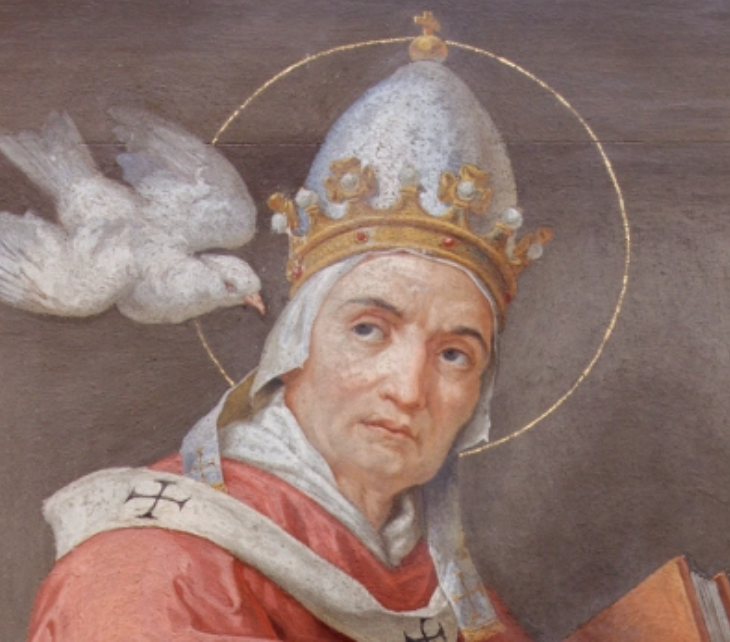Saints Saint Pope Gregory I
Pope Saint Gregory I, also known as Gregory the Great, was one of the most significant figures in the history of the Roman Catholic Church. His tenure as pope (590-604 AD) was marked by administrative reform, missionary activity, and extensive writing that helped shape the future of the Church. His one of the Latin Fathers and a Doctors of the Church. Gregory was a vigorous advocate for the papal supremacy, and his influence on Christian worship, particularly through the "Gregorian Chant," is still apparent today.

Gregory was born around 540 AD into a wealthy and influential Roman family. His father was a senator, and his mother, Silvia, is venerated as a saint. Gregory was well-educated, showing great aptitude in law and excelling in his studies. He followed in his father's footsteps, serving as the Prefect of Rome, the city's highest civil office, in his early thirties.
In 574, after the death of his father, Gregory underwent a profound religious conversion. He transformed his family's palatial home into a monastery named St. Andrew's and dedicated his life to monasticism. He spent several years living as a monk, during which time he developed a deep understanding of the Bible and the writings of the Church Fathers.
In 579, Pope Pelagius II ordained Gregory as one of the seven deacons of Rome and sent him to Constantinople as an ambassador to the imperial court. His diplomatic service equipped him with valuable administrative and political experience, and his skill in dealing with both ecclesiastical and secular authorities would later become evident during his papacy.
In 590, after the death of Pope Pelagius II due to the plague, Gregory was unanimously elected as his successor, becoming Pope Gregory I. His papacy was marked by significant reforms in the administration of Church's estates, improving the system to ensure the proper care for the poor and needy. He also established many monasteries and sent missionaries across Europe, the most famous of whom was Augustine of Canterbury, who brought Christianity to England.
Gregory was a prolific writer, his most famous works being his "Moralia in Job," a detailed commentary on the book of Job, and "Pastoral Care," a guide for bishops on their roles as pastors. His writings had a significant influence on medieval spirituality.
Gregory also made notable contributions to the liturgy of the Mass, and his name is associated with "Gregorian Chant," a form of plainchant in Western Christian liturgy.
Pope Gregory I died on March 12, 604 AD. His death marked the end of an era in which he had reformed the Church's administration, spread Christianity, and significantly contributed to the Church's liturgy and spirituality. Because of his contributions, he is one of the few popes to be given the title "the Great." He is venerated as a saint in the Catholic Church, and his influence on Christianity continues to be felt today.
Saint Pope Gregory the Great's feast day is September 3rd.
Learn more about The Saints.